Portal:United Kingdom
The United Kingdom Portal
 |
 |
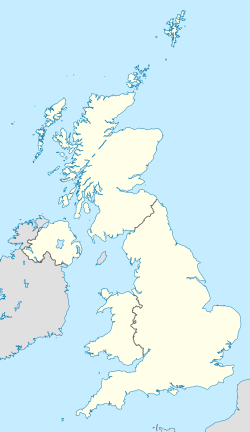
| |
The United Kingdom of Great Britain and Northern Ireland, commonly known as the United Kingdom (UK) or Britain, is a country in Northwestern Europe, off the coast of the continental mainland. It comprises England, Scotland, Wales, and Northern Ireland. The UK includes the island of Great Britain, the north-eastern part of the island of Ireland, and most of the smaller islands within the British Isles, covering 94,354 square miles (244,376 km2). Northern Ireland shares a land border with the Republic of Ireland; otherwise, the United Kingdom is surrounded by the Atlantic Ocean, the North Sea, the English Channel, the Celtic Sea, and the Irish Sea. The UK maintains sovereignty over the British Overseas Territories, which are located across various oceans and seas globally. The United Kingdom had an estimated population of over 68.2 million people in 2023. The capital and largest city of both England and the United Kingdom is London. The cities of Edinburgh, Cardiff, and Belfast are the national capitals of Scotland, Wales, and Northern Ireland, respectively.
The UK has been inhabited continuously since the Neolithic. In AD 43, the Roman conquest of Britain began; the Roman departure was followed by Anglo-Saxon settlement. In 1066, the Normans conquered England. With the end of the Wars of the Roses, the English state stabilised and began to grow in power, resulting by the 16th century in the annexation of Wales, and the establishment of the British Empire. Over the course of the 17th century, the role of the British monarchy was reduced, particularly as a result of the English Civil War. In 1707, the Kingdom of England and the Kingdom of Scotland united under the Treaty of Union to create the Kingdom of Great Britain. In the Georgian era, the office of prime minister became established. The Acts of Union 1800 incorporated the Kingdom of Ireland to create the United Kingdom of Great Britain and Ireland in 1801. Most of Ireland seceded from the UK in 1922 as the Irish Free State, and the Royal and Parliamentary Titles Act 1927 created the present United Kingdom.
The UK became the first industrialised country and was the world's foremost power for the majority of the 19th and early 20th centuries, particularly during the Pax Britannica between 1815 and 1914. The British Empire was the leading economic power for most of the 19th century, a position supported by its agricultural prosperity, its role as a dominant trading nation, a massive industrial capacity, significant technological achievements, and the rise of 19th-century London as the world's principal financial centre. At its height in the 1920s, the British Empire encompassed almost a quarter of the world's landmass and population, and was the largest empire in history. However, its involvement in the First World War and the Second World War damaged Britain's economic power and a global wave of decolonisation led to the independence of most British colonies. (Full article...)
Featured article
Gray's Inn is one of the four Inns of Court in London. To be called to the Bar and practise as a barrister in England and Wales, an individual must belong to one of these Inns. Located at the intersection of High Holborn and Gray's Inn Road, the Inn is both a professional body and a place of living and office accommodation (chambers) for many barristers. It is ruled by a governing council called "Pension", made up of the Masters of the Bench (or "Benchers"), and led by the Treasurer, who is elected to serve a one-year term. The Inn is known for its gardens, or Walks, which have existed since at least 1597. Gray's Inn does not claim a specific foundation date; there is a tradition that none of the Inns of Court claims to be any older than the others. Law clerks and their apprentices have been established on the present site since at least 1370, with records dating from 1391. During the 15th and 16th centuries, the Inn grew steadily, reaching its pinnacle during the reign of Elizabeth I. The outbreak of the First English Civil War in 1642 during the reign of Charles I disrupted the systems of legal education and governance at the Inns of Court, shutting down all calls to the Bar and new admissions, and Gray's Inn never fully recovered. Fortunes continued to decline after the English Restoration, which saw the end of the traditional method of legal education. Although now more prosperous, Gray's Inn is still the smallest of the Inns of Court. (Full article...)
Featured biography
William McGregor (1846–1911) was an association football administrator in the Victorian era, who is regarded as the founder of the Football League, the first organised football league in the world. After moving from Perthshire to Birmingham to set up business as a draper, McGregor became involved with local football club Aston Villa, which he helped to establish as one of the leading teams in England. He served the club for over twenty years in various capacities, including president, director and chairman. In 1888, frustrated by the regular cancellation of Villa's matches, McGregor organised a meeting of representatives of England's leading clubs, which led to the formation of the Football League, giving member clubs a guaranteed fixture list each season. This was instrumental in the transition of football from an amateur pastime to a professional business. McGregor served as both chairman and president of the Football League and was also chairman of the Football Association (the FA). He was recognised by the FA for his service to the game shortly before his death in 1911, and was posthumously honoured by the local football authorities and Aston Villa. (Full article...)
General images -
Subportals
WikiProjects
Things you can do
- Visit the British Wikipedians' notice board.
- The noticeboard is the central forum for information and discussion on editing related to the United Kingdom.
- Comment at the British deletion sorting page.
- This page lists deletion discussions on topics relating to the United Kingdom.
Featured pictures
Did you know -

- ... that booing heard after the United Kingdom's entry at the Eurovision Song Contest 1984 was reportedly either a response to past football hooliganism, claims of lip syncing, or alleged plagiarism of the Supremes?
- ... that New Zealand composer Maewa Kaihau sold her rights to the song "Now is the Hour" for £10, a decade before it became a hit in the United Kingdom and United States?
- ... that the 1st Armoured Division of the British Army chose a white rhinoceros on a black oval as their insignia?
- ... that David P. Davies was the chief test pilot for the United Kingdom's Civil Aviation Authority for 33 years?
- ... that before Michael Shanks became Member of Parliament for Rutherglen and Hamilton West, he ran along all of Glasgow's 6,143 streets?
- ... that in Crippled, author Frances Ryan describes a disabled British woman who was unable to afford heating or her specialist meals due to an austerity programme that began in 2010?
In the news
- 7 April 2025 –
- The first birth of a baby in the United Kingdom to a woman with a transplanted womb is announced. The baby girl, delivered at Queen Charlotte's and Chelsea Hospital in London to a 36-year-old woman, is reported to be healthy. (BBC News)
- 5 April 2025 – Tariffs in the second Trump administration, Executive orders in the second presidency of Donald Trump
- UK-based multinational car manufacturer Jaguar Land Rover suspends vehicle exports to the United States for a month to evaluate the impact of Trump's tariffs on the automotive industry. (Fox Business)
- 5 April 2025 – Israel–United Kingdom relations
- Israel blocks two British Labour Party MPs from entering the country. (Reuters)
- 3 April 2025 – Tariffs in the second Trump administration
- A 25% tariff on all automotive imports into the United States enters force. No exemptions are announced despite requests from several major trade partners, including Japan and the United Kingdom. (Reuters)
- 27 March 2025 –
- British environmental activist group Just Stop Oil announces they will end all civil resistance, direct action, and vandalism-related protests immediately and disband by April 26 after the British government announced it will halt the granting of new oil and gas permits. (DW) (Government of the United Kingdom)
- 24 March 2025 – United Kingdom cost-of-living crisis
- British supermarket chain Morrisons announces that it will permanently close 52 cafés and 17 stores as part of cost-cutting measures, with the loss of at least 365 jobs expected. (BBC News)
Categories
Other UK-connected Wikipedias
Wikimedia
The following Wikimedia Foundation sister projects provide more on this subject:
-
Commons
Free media repository -
Wikibooks
Free textbooks and manuals -
Wikidata
Free knowledge base -
Wikinews
Free-content news -
Wikiquote
Collection of quotations -
Wikisource
Free-content library -
Wikiversity
Free learning tools -
Wikivoyage
Free travel guide -
Wiktionary
Dictionary and thesaurus



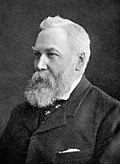



























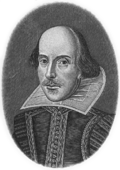





























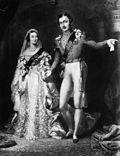










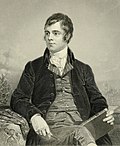

















![Image 7 George IV Artist: Sir Thomas Lawrence An oil on canvas portrait of George IV of the United Kingdom as the Prince Regent, by Sir Thomas Lawrence. In 1814, Lord Stewart, who had been appointed ambassador in Vienna and was a previous client of Thomas Lawrence, wanted to commission a portrait by him of the Prince Regent. He arranged that Lawrence should be presented to the Prince Regent at a levée. Soon after, the Prince visited Lawrence at his studio in Russell Square. Lawrence wrote to his brother that: To crown this honour, [he] engag'd to sit to me at one today and after a successful sitting of two hours, has just left me and comes again tomorrow and the next day. More featured pictures](http://upload.wikimedia.org/wikipedia/commons/thumb/9/9f/George_IV_bust1.jpg/120px-George_IV_bust1.jpg)






























